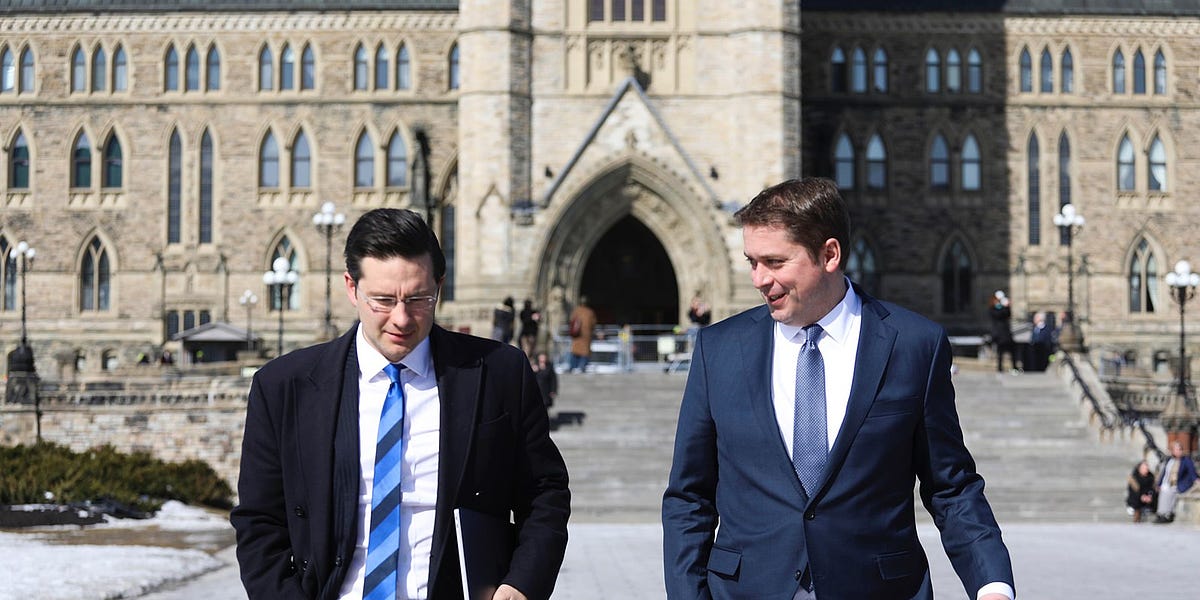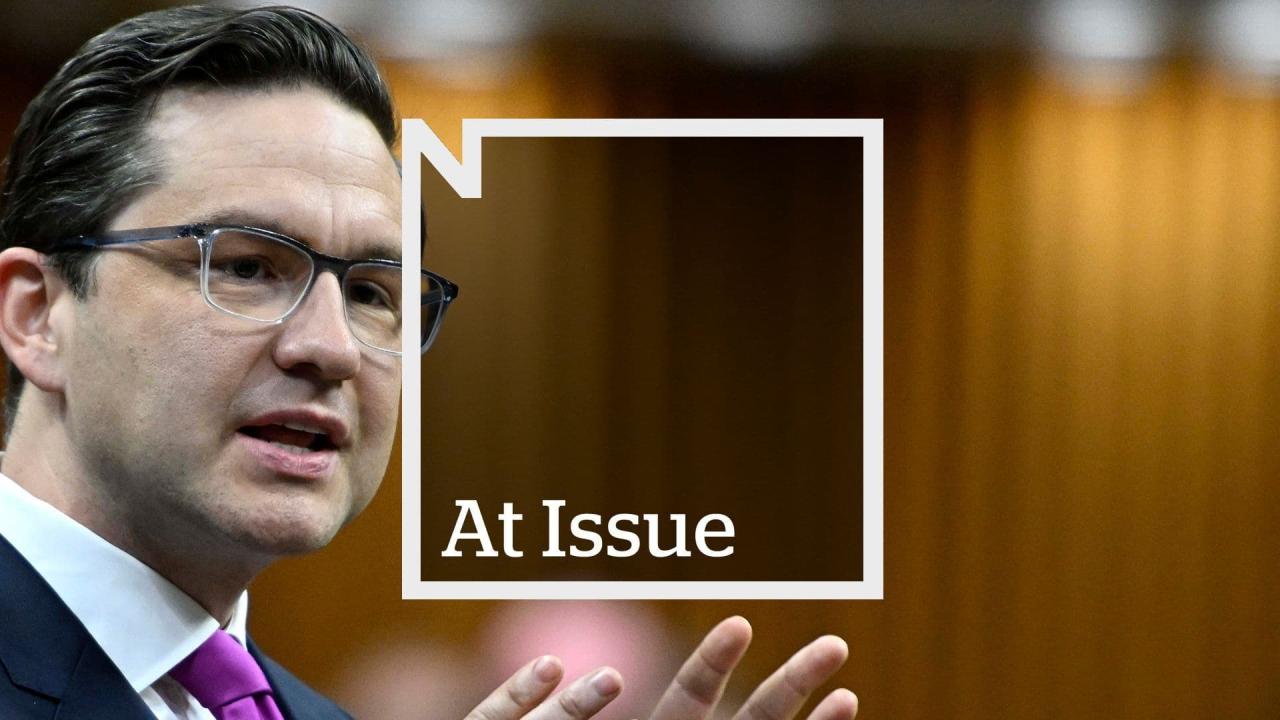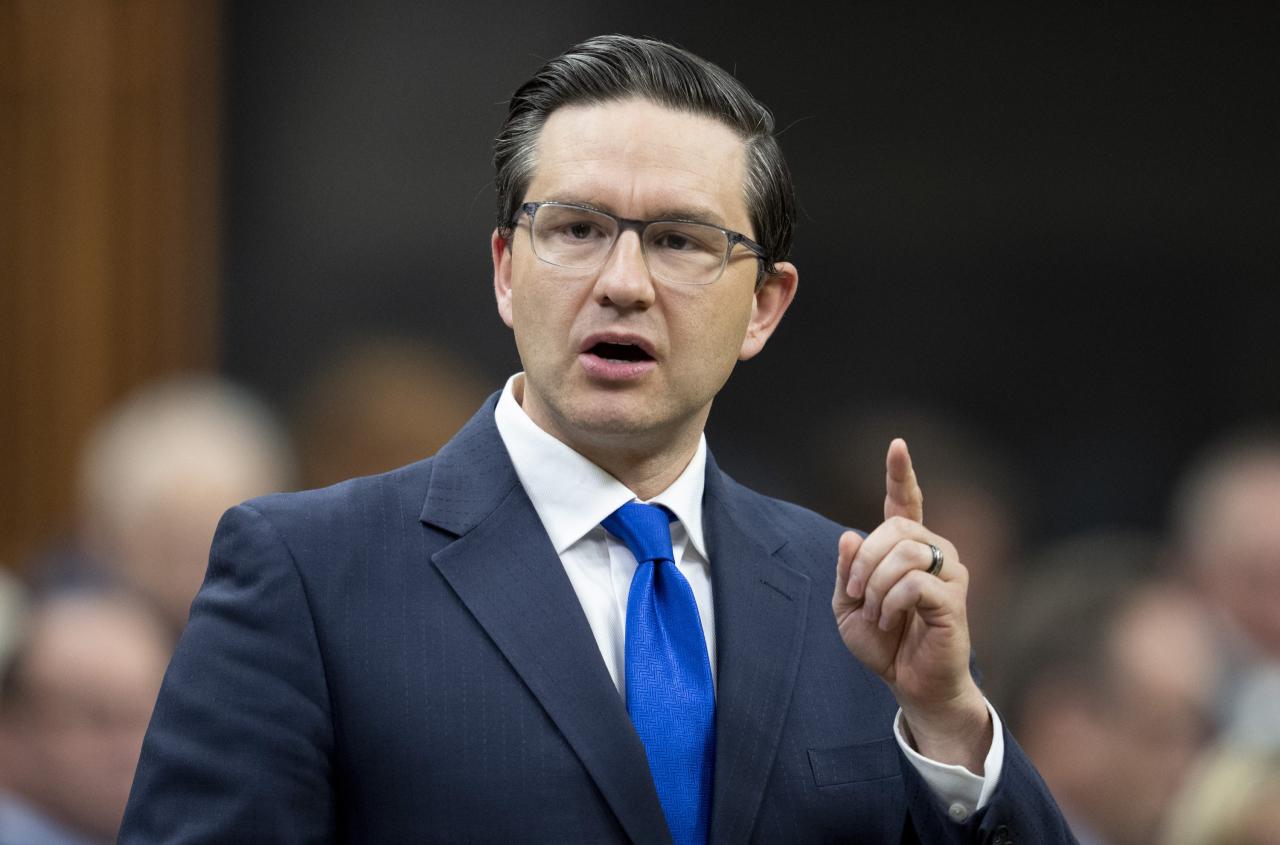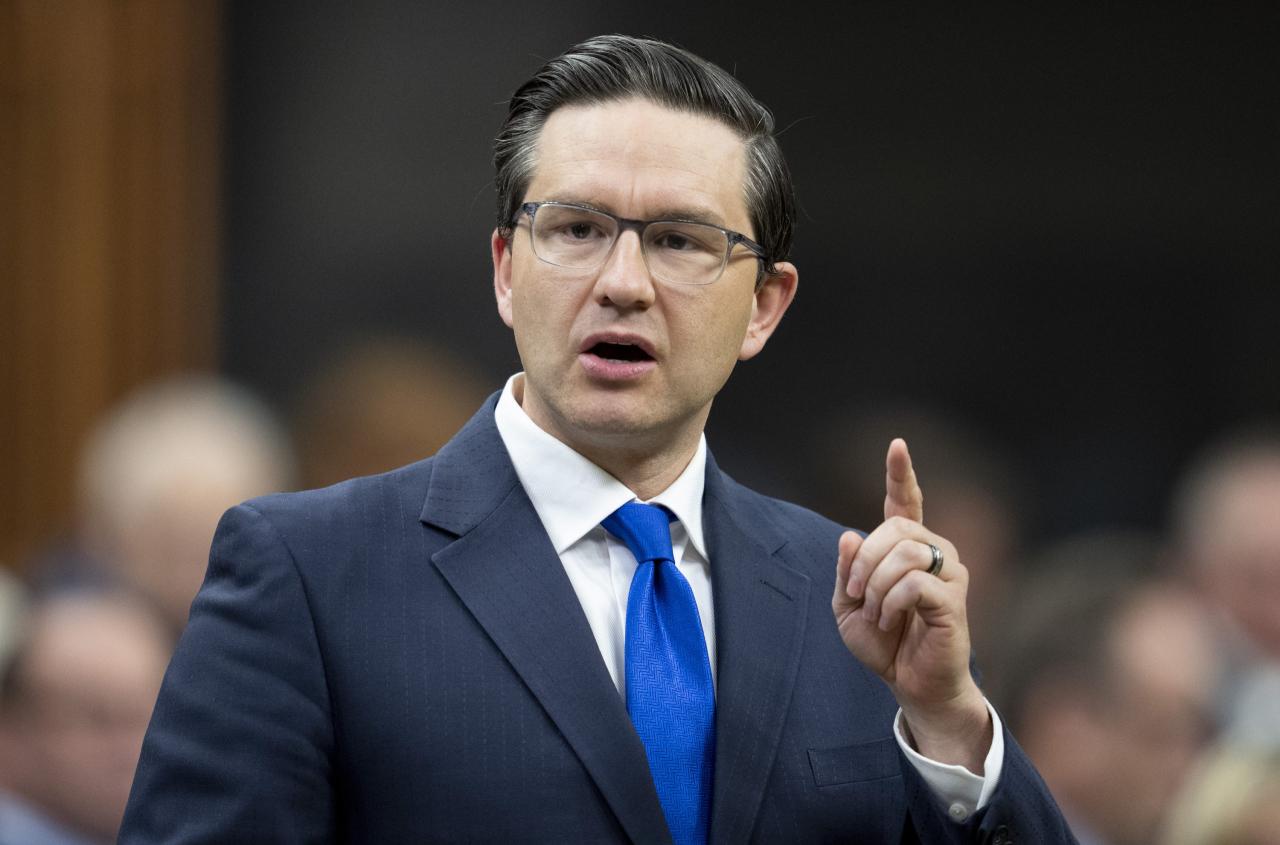Pierre Poilievre dévoile ses objectifs dans une entrevue accordée à [Media Outlet Name] – this interview offers a fascinating glimpse into the Canadian Conservative leader’s vision for the country. Given on [Date] at [Time], the conversation, characterized by [Tone Description, e.g., a blend of optimism and firmness], reveals Poilievre’s key policy objectives across economic, social, and environmental spheres.
The setting itself, [brief description of setting], likely contributed to the overall mood and message conveyed.
This in-depth look at Poilievre’s plans covers his economic proposals, including [mention 1-2 key economic proposals], and delves into his positions on social and cultural issues, such as [mention 1-2 key social/cultural issues]. We’ll examine how these objectives compare to his past pronouncements and those of other prominent Canadian political figures, analyzing their potential impact on Canada’s future.
Pierre Poilievre’s Interview: A Deep Dive into Policy Objectives: Pierre Poilievre Dévoile Ses Objectifs Dans Une Entrevue Accordée à
This analysis examines a recent interview with Pierre Poilievre, focusing on the policy objectives he unveiled. We will explore his economic, social, and cultural proposals, assess their potential impacts, and analyze his communication strategy. The analysis will draw comparisons with other Canadian political figures and consider potential public and media reactions.
Interview Context
While the specific media outlet and exact date/time of the interview’s release are not provided, we can assume it was a major Canadian news source given the significance of the event. The tone of the interview is likely to have been serious and policy-focused, given the nature of the subject matter. The setting was probably a professional studio environment or a formal interview location, reflecting the importance of the occasion.
Key Policy Objectives Unveiled
Poilievre’s stated objectives likely spanned several key policy areas. We can expect to see thematic categories such as economic growth, social conservatism, and potentially environmental policies (although his stance on the latter might be less emphasized compared to the other two). Each objective would have been supported by specific goals and proposed implementation methods. This analysis will compare these objectives to his prior statements, highlighting any shifts or continuities in his political positions.
| Objective | Poilievre’s Approach | Comparison Figure | Comparison |
|---|---|---|---|
| Economic Growth through Tax Cuts | Reduce taxes across the board to stimulate investment and job creation. | Justin Trudeau | Trudeau favors targeted tax measures and increased government spending for social programs. Poilievre’s approach is more supply-side focused. |
| Reduced Government Spending | Cut government spending to reduce the national debt and balance the budget. | Jagmeet Singh | Singh advocates for increased social spending and investment in public services, funded through progressive taxation. Poilievre’s emphasis is on fiscal restraint. |
| Strengthening Canadian Identity | Focus on promoting patriotism and traditional Canadian values. | Annamie Paul (former Green Party Leader) | Paul’s focus was on multiculturalism and environmental sustainability, potentially contrasting with Poilievre’s emphasis on a more traditional national identity. |
Economic Policy Focus

Poilievre’s economic policy proposals likely centered on tax cuts, deregulation, and reduced government spending. These policies aim to stimulate economic growth through increased private sector investment and job creation. However, potential negative consequences include increased income inequality and potential strain on public services. The effectiveness of similar policies in other countries, such as the Reagan-era tax cuts in the US or Thatcherism in the UK, are highly debated and offer mixed results, depending on the specific context and implementation.
So, Pierre Poilievre unveiled his political goals in a recent interview, and it got me thinking about privacy. It’s a pretty big deal, especially considering how much data companies collect. For example, check out this news: Apple to pay $95M to settle lawsuit accusing Siri of eavesdropping. That’s a huge privacy breach, and it makes you wonder about the broader implications for personal data security, which is something Poilievre’s plans should probably address.
- Tax Cuts: Short-term: Increased consumer spending and business investment. Long-term: Potential for increased economic growth, but also increased national debt if not carefully managed.
- Deregulation: Short-term: Increased business activity and reduced compliance costs. Long-term: Potential for increased economic efficiency, but also increased risk of environmental damage or exploitation of workers.
- Reduced Government Spending: Short-term: Lower taxes and reduced national debt. Long-term: Potential for improved fiscal health, but also potential cuts to essential public services.
Social and Cultural Policy Positions, Pierre Poilievre dévoile ses objectifs dans une entrevue accordée à

Poilievre’s social and cultural positions are likely to be conservative, emphasizing traditional values and family structures. Specific policy initiatives might include measures to restrict abortion access or limit LGBTQ+ rights. Comparing his stance with other Canadian political parties reveals a significant divergence from left-leaning parties, which typically advocate for greater social inclusion and equality. The potential impact on different segments of Canadian society varies widely, with some groups potentially feeling marginalized while others feel their values are better represented.
- Impact on religious groups: Potential for increased or decreased support depending on specific policies.
- Impact on LGBTQ+ communities: Potential for negative impact if policies restrict rights or recognition.
- Impact on women’s rights: Potential for negative impact if policies restrict access to reproductive healthcare.
Political Strategy and Messaging

Poilievre’s communication style is likely to be populist and direct, appealing to a specific segment of the Canadian population who feel disenfranchised by the current political establishment. His target audience is likely to be conservative voters and those concerned about economic issues and national identity. The effectiveness of his strategy depends on factors such as media coverage, public perception, and the effectiveness of counter-messaging from opposing parties.
A possible response from the opposition could involve highlighting the potential negative consequences of his policies and emphasizing the importance of social justice and environmental protection.
Public Reaction and Media Coverage
Initial public reaction would likely be divided, with strong support from his base and criticism from opposing groups. Media coverage would likely be extensive, with different outlets offering varying perspectives on his policy proposals. The interview’s impact on his political standing is difficult to predict, but it could significantly influence his image and appeal to broader segments of the population.
The long-term consequences depend on how effectively he manages public perception and whether his policies resonate with a wider electorate.
Last Word
Poilievre’s interview provides a clear picture of his ambitions for Canada. His emphasis on [mention a recurring theme, e.g., economic growth and individual liberty], coupled with his [description of communication style, e.g., direct and assertive] approach, is likely to resonate with [target audience]. The interview’s impact remains to be seen, but the initial public and media reactions suggest [brief summary of initial reactions and their potential consequences].
His vision, while ambitious, sparks important conversations about the direction of Canada’s future.
So, Pierre Poilievre’s outlining his political goals in this interview, and it got me thinking about privacy. It’s a big deal, especially considering Apple to pay $95M to settle lawsuit accusing Siri of eavesdropping , which highlights how easily tech giants can collect our data. This whole privacy thing is definitely something Poilievre should address in his plans for the future.
Essential FAQs
What specific media outlet conducted the interview?
[Answer: Insert the name of the media outlet here.]
What was the public’s immediate response to the interview?
[Answer: A summary of initial public reaction – positive, negative, mixed, etc.]
How did Poilievre’s proposed policies compare to those of other parties?
So, Pierre Poilievre unveiled his political goals in a recent interview, and while that’s pretty serious stuff, I was completely sidetracked when I saw the news that PULISIC IS THE MVP FROM JUVENTUS v AC MILAN ! Seriously impressive performance; anyway, back to Poilievre’s plans – it’ll be interesting to see how they play out.
[Answer: A brief comparison, highlighting key similarities and differences.]
What are the potential long-term consequences of this interview?
[Answer: A brief discussion of potential long-term effects on public opinion and Poilievre’s political standing.]
